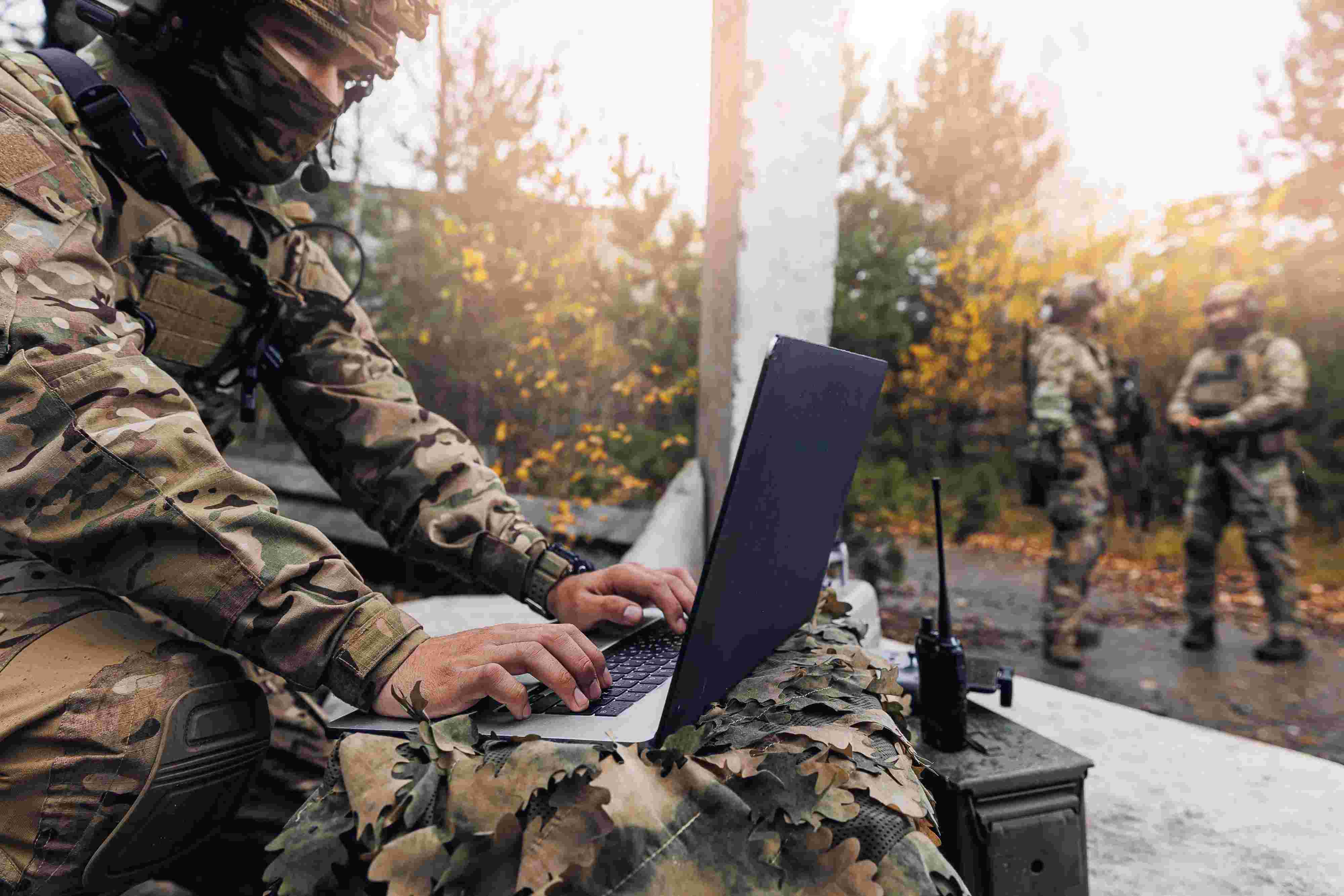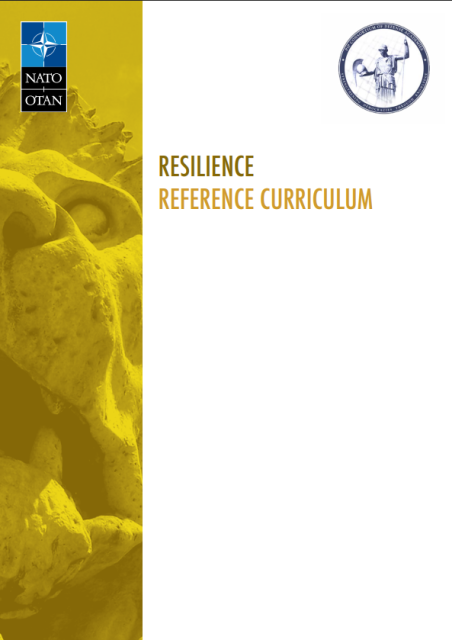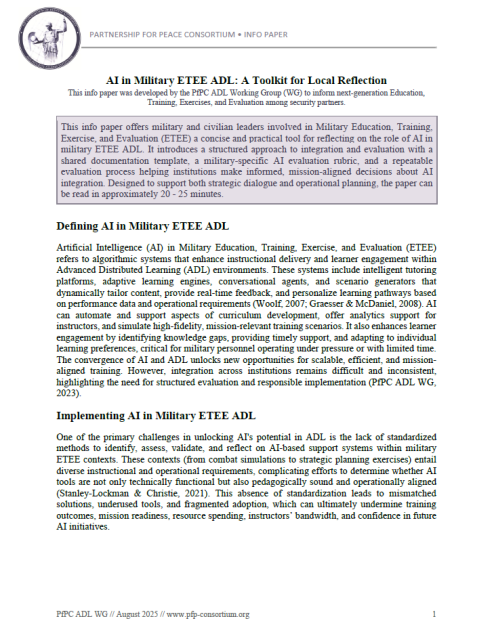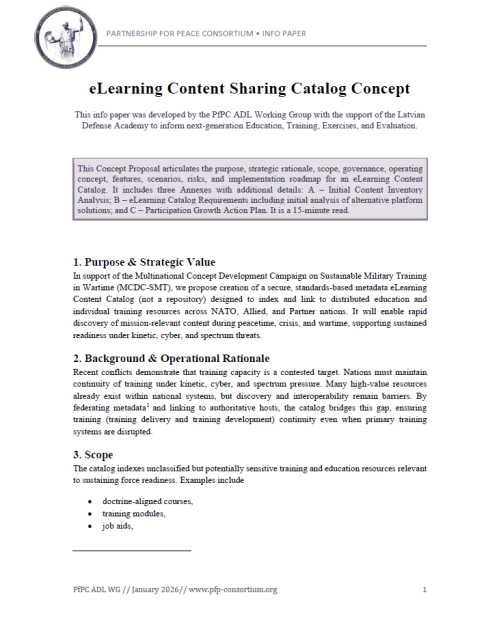
RIGA, Latvia — In a move to bolster defense readiness and innovation, the Latvian National Defense Academy (NADAL) hosted a key workshop on May 20–21, 2025, uniting military education and training leaders from over 20 nations. The event, organized by the Partnership for Peace Consortium (PfPC) Advanced Distributed Learning (ADL) Working Group, underscored the critical role of digital learning in modern military operations. With participation from key NATO institutions and national delegations, the workshop focused on enhancing digital capabilities to keep Allied and Partner forces connected and mission-ready in an era of complex, hybrid threats.
AI Integration and eLearning Sharing Take Center Stage
Two major initiatives took center stage. Dr. Stijn Van Laer (NATO ACT) led efforts to develop an evaluation framework for integrating artificial intelligence into military education and training. This framework, supported by 19 real-world use cases shared during the workshop, is a key step in establishing NATO-wide AI adoption guidelines that balance scalability, ethical use, and mission alignment. Simultaneously, Gigi Roman (NATO School) spearheaded a push to strengthen eLearning content sharing among member nations, laying out plans for a digital training ecosystem that includes a content-sharing newsletter, live demo series, and resource stewardship models to maintain continuity during wartime disruptions.

Latvia’s Regional Role and Next Steps for Defense Education
The workshop, supported by NADAL leadership including Lt. Col. Aivis Šaicāns and Lt. Col. Ēriks Keisters, reaffirmed Latvia’s position as a regional hub for defense innovation. “This workshop didn’t just move projects forward—it deepened the trust and interoperability that define our partnerships,” said Lt. Col. Michael Nickolaus, co-chair of the ADL Working Group. As digital learning continues to emerge as a strategic enabler, follow-up events at the NATO Training Technology Conference in Istanbul and the PfPC Annual Conference in Gdansk later this year promise to build on Riga’s momentum.
You can learn more about the Advanced Distributed Learning Working Group here.







